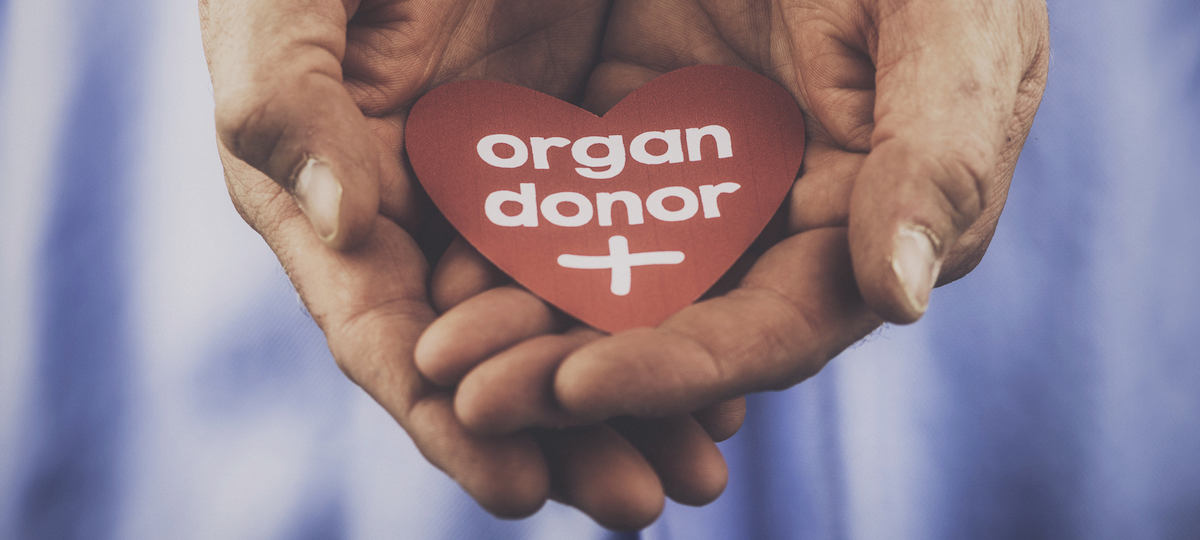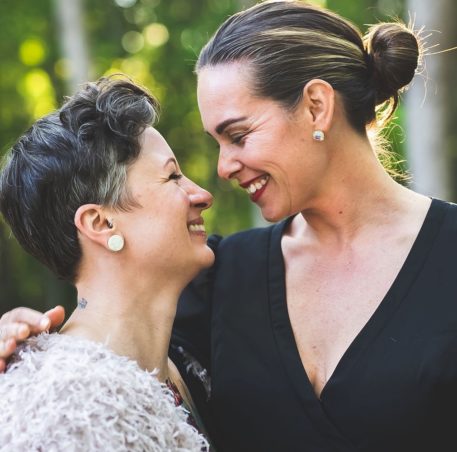<< Back
How She Became a Kidney Donor: During Pride Month, a Call for Living Donors

June 23, 2021
Walking out of a diner in 2019, Lindsay Vigue saw a sign that changed her life – and two other lives as well.
The sign featured the story of a man needing a life-saving kidney transplant and looking for a donor.
“I told my wife, ‘I think that’s something I might want to do,’” Vigue said, referring to becoming a living donor. Since most healthy people can function with one kidney, living donors offer the second to those in need.
After riding what she called a “pendulum” of emotions swinging from favoring the idea to nerves about surgery, Vigue returned to the diner, took down the Hartford Hospital Transplant Program number off the sign and called. Four months of testing later, she was deemed a suitable match for the man.
Vigue, a photographer whose busy season is summer, wanted to donate in December but the man was not yet cleared for transplant. Instead, the National Kidney Registry matched her kidney to an 18-year-old in New York City and gave the local man a voucher to move to the top of the waiting list when he was ready. In 2020, he also received a new kidney.
 Jessica Paine, left, with Lindsay Vigue.
Jessica Paine, left, with Lindsay Vigue.
Suzanne Morello, outreach coordinator of the Hartford HealthCare Transplant Program, said living donors are vital in helping the many people waiting for kidneys. The number of donations from deceased donors, she noted, will never meet the demand.
“Living donation is the preferred choice for kidney transplantation,” said Dr. Glyn Morgan, chief of surgical transplantation at Hartford Hospital. “We always ask our patients to consider this option first. There are so many ways to find a living donor these days. We take the burden off the patient to ‘find a match’ as we will handle that for them.
Vigue and her wife, Jessica Paine, a nurse with New England Donor Services, have had countless conversations about their positive experience and hope to dispel the misunderstanding that people in the LGBTQ+ community could not be considered donors.
“I’ve had people tell me ‘I can’t donate because I’m a gay man,’” Paine said. “There have been – and still are some – restrictions for gay men and blood donations, but there are no restrictions with organ donations. They are governed by different regulations.”
The couple wanted to share their experience in Pride Month to address such misinformation and potentially improve transplant rates in this underserved population.
“I understand how important it is for people to donate. We need living donors,” Paine said.
Vigue said she encourages people to investigate the possibility of donation. There is no pressure in the process, Morello added.
“They want to make sure you’ll be able to live your life healthy with one kidney,” Vigue said, adding that she has the added insurance of knowing if something happens to her remaining kidney, she automatically goes to the top of the transplant waiting list.
The connection for Vigue, Morello said, was sparked by the Donor Champions Program which helps patients and their families share their story and need for a kidney transplant through posters, social media and other avenues.
“It was a beautifully positive experience and I would encourage anyone to see if it’s for them,” Vigue said. The only changes she’s made is eliminating non-steroidal anti-inflammatory drugs like Motrin and staying hydrated to keep her remaining kidney healthy. “I have a completely new perspective about donation.”